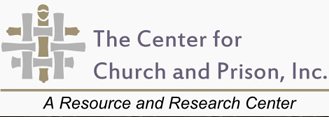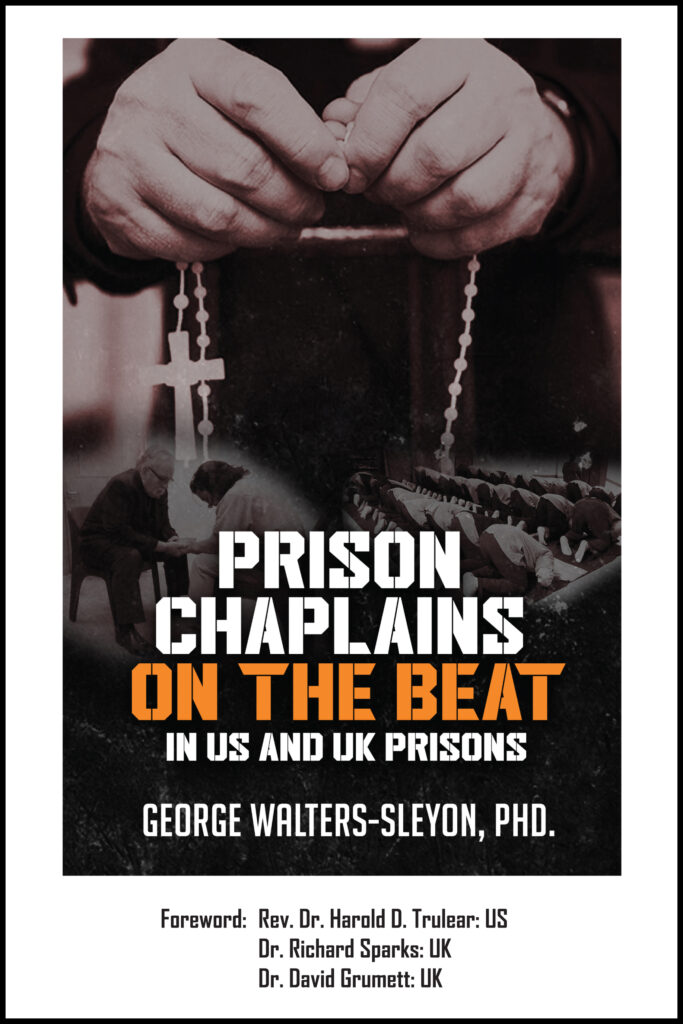Felon Disenfranchisement
Felon Disenfranchisement
Barring people from the polls because of criminal convictions
- Full Human Beings: An argument for incarcerated voter enfranchisement Peoples Policy Project, May, 2018
- 1844 No More New Jersey Institute for Social Justice, December, 2017
- Racism & Felony Disenfranchisement: An Intertwined History Brennan Center for Justice, May, 2017
- The Voting Rights of Ex-Felons and Election Outcomes in the United States Tilman Klumpp, Hugo Mialon, Michael Williams, March, 2017
- Felony Disenfranchisement in the Commonwealth of Kentucky League of Women Voters of Kentucky, February, 2017
- Florida: An Outlier in Denying Voting Rights Brennan Center for Justice, December, 2016
- 6 Million Lost Voters: State-Level Estimates of Felony Disenfranchisement, 2016 The Sentencing Project, October, 2016
- Voting Rights of Former Felons ACLU of Nebraska, June, 2016
- How Racial Attitudes and Ideology Affect Political Rights for Felons Du Bois Review, May, 2015
- Voting Rights Barriers and Discrimination in 21st Century California 2000-2013 Lawyer’s Committee for Civil Rights of the San Francisco Bay Area, March, 2014
- Democracy Imprisoned A Review of the Prevalence and Impact of Felony Disenfranchisement Laws in the United States The Sentencing Project et al., September, 2013
- Imprisonment and Disenfranchisement of Disconnected Low-Income Men Urban Institute, August, 2013
- Felony Disenfranchisement: A Primer Sentencing Project, June, 2013
- Restoration of Rights Project National Association of Criminal Defense Lawyers, October, 2012
- Felony Disenfranchisement Laws in The United States Sentencing Project, August, 2012
- State-Level Estimates of Felon Disenfranchisement in the United States 2010 Sentencing Project, July, 2012
- Voting Behind Bars An Argument for Voting by Prisoners Sentencing Project, July, 2011
- Voting Behind Bars: An Argument for Voting by Prisoners Sentencing Project, June, 2011
- Expanding the Vote: State Felony Disenfranchisement Reform, 1997-2010 Sentencing Project, October, 2010
- Importing Constituents Prisoners and Political Clout in Connecticut Prison Policy Initiative, March, 2010
- Importing Constituents Incarcerated People and Political Clout in Maryland Prison Policy Initiative, March, 2010
- Importing Constituents Prisoners and Political Clout in California Prison Policy Initiative, March, 2010
- Importing Constituents: Prisoners and Political Clout in Illinois Prison Policy Initiative, February, 2010
- Recommendations to the UN Forum on Minority Issues Human Rights Council Sentencing Project, November, 2009
- Importing Constituents: Prisoners and Political Clout in Massachusetts Prison Policy Initiative, October, 2009
- Report Submitted to Inter-American Commission on Human Rights Sentencing Project, September, 2009
- Importing Constituents: Prisoners and Political Clout in Oklahoma Prison Policy Initiative, September, 2009
- Expanding the Vote State Felony Disenfranchisement Reform, 1997-2008 Sentencing Project, September, 2009
- Importing Constituents Prisoners and Political Clout in Pennsylvania Prison Policy Initiative, June, 2009
- Phantom Constituents in Maine’s Regional School Unit 13: How the Census Bureau’s outdated method of counting prisoners harms democracy Prison Policy Initiative, January, 2009
- Importing Constituents: Prisoners and Political Clout in Wisconsin Prison Policy Initiative, March, 2008
- The Campaign to Restore the Voting Rights of Persons Convicted of a Felony DemocracyWorks, January, 2008
- Phantom constituents in the Empire State: How outdated Census Bureau methodology burdens New York counties Prison Policy Initiative, July, 2007
- The Modern-Day Poll Tax How Economic Sanctions Block Access to the Polls Sentencing Project, May, 2007
- Challenges to Felony Disenfranchisement Laws Past, Present, and Future Alabama Law Review, May, 2007
- Barriers to Democracy A Petition to the Inter-American Commission on Human Rights for a Thematic Hearing on Felony Disenfranchisement Practice Sentencing Project, May, 2007
- Felon Disenfranchisement in Alaska and the Voting Rights Act of 1965 Alaska Law Review, December, 2006
- A Decade of Reform: Felony Disenfranchisement Policy in the United States Sentencing Project, October, 2006
- Felony Disenfranchisement in Connecticut Sentencing Project, October, 2006
- Felony Disenfranchisement in the Commonwealth of Kentucky League of Women Voters of Kentucky, October, 2006
- Briefing Sheet on Felon Disenfranchisement Sentencing Project, August, 2006
- Losing the Right to Vote: Perceptions of Permanent Disenfranchisement and the Civil Rights Restoration Application Process in Kentucky Sentencing Project, Elizabeth A. Wahler, April, 2006
- Why the Census Bureau can and must start collecting the home addresses of incarcerated people Prison Policy Initiative, February, 2006
- A ‘Crazy-Quilt’ of Tiny Pieces: State and Local Administration of American Criminal Disenfranchisement Law Alec Ewald, Sentencing Project, November, 2005
- Studies of Voting Behavior and Felony Disenfranchisement Among Individuals in the Criminal Justice System in New York, Connecticut, and Ohio Sentencing Project, September, 2005
- Voting While Incarcerated: A Tool Kit for Voting Rights Advocates American Civil Liberties Union, September, 2005
- Prisoners of the Census: Electoral and Financial Consequences of Counting Prisoners Where They Go, Not Where They Come From Eric Lotke and Prison Policy Initiative, April, 2005
- Issue Brief on the Impact of Incarceration & Reentry: Rhode Island’s Shrinking Black Electorate Rhode Island Right to Vote Campaign, February, 2005
- Barred for Life: Voting Rights Restoration in Permanent Disenfranchisement States Sentencing Project, January, 2005
- Taxation Without Representation: Why Rhode Island needs to restore voting rights to people with felony convictions living in our communities Rhode Island Right to Vote Campaign, 2005
- Importing Constituents: Prisoners and Political Clout in Nevada Prison Policy Initiative and Progressive Leadership Alliance of Nevada, December, 2004
- Importing Constituents: Prisoners and Political Clout in Montana Prison Policy Initiative, December, 2004
- Triple-Decker Disenfranchisement: First-Person Accounts of Losing the Right to Vote among Poor, Homeless Americans with a Felony Conviction Sentencing Project, November, 2004
- No Second Chance: People with Criminal Records Denied Access to Public Housing Human Rights Watch, November, 2004
- Importing Constituents: Prisoners and Political Clout in Texas Prison Policy Initiative, November, 2004
- Actual Constituents: Students and Political Clout in New York Prison Policy Initiative, October, 2004
- Purged! How Flawed and Inconsistent Voting Systems Could Deprive Millions of Americans of the Right to Vote ACLU, October, 2004
- Jim Crow in Massachusetts? Prisoner disenfranchisement Prison Policy Initiative, October, 2004
- The Vanishing Black Electorate: Felony Disenfranchisement In Atlanta, Georgia Sentencing Project, September, 2004
- The 50-State Report on Re-Enfranchisement: A Guide to Restoring Your Right to Vote Lawyers Committee for Civil Rights, September, 2004
- Political Punishment: The Consequences of Felon Disenfranchisement for Rhode Island Communities Rhode Island Family Life Center, September, 2004
- The Disenfranchisement Of The Re-Enfranchised: How Confusion Over Felon Voter Eligibility in Ohio Keeps Qualified Ex-Offender Voters From the Polls Prison Reform Advocacy Center, August, 2004
- Importing Constituents: Prisoners and Political Clout in Ohio Prison Policy Initiative, July, 2004
- Too big to ignore: How counting people in prisons distorted Census 2000 Prison Policy Initiative, April, 2004
- Prisoners Gerrymandering Project Miscounting prisoners undercounts democracy Prison Policy Initiative, March, 2004
- Felony Disenfranchisement Rates for Women Sentencing Project, March, 2004
- Punishing at the Polls: The Case Against Disenfranchising Citizens with Felony Convictions Alec Ewald, Demos, December, 2003
- Diminished Voting Power in the Latino Community The Impact of Felony Disenfranchisement Laws in Ten Targeted States MALDEF, December, 2003
- Legislative Changes on Felony Disenfranchisement, 1996-2003 Sentencing Project, September, 2003
- Disenfranchised Veterans in the United States Sentencing Project, June, 2003
- Incarceration and Enfranchisement: International Practices, Impact and Recommendations for Reform Brandon Rottinghaus, International Foundation for Election Systems, June, 2003
- Jail-based voter registration campaigns Sentencing Project, May, 2003
- The Partisan Politics of Ex-Felon Disenfranchisement Laws (excerpts) Jason Belmont Conn, May, 2003
- State-Based Advocacy on Felony Disenfranchisement Sentencing Project, February, 2003
- Democratic Contraction: Political Consequences of Felon Disenfranchisement in the United States Profs. Uggen and Manza, November, 2002
- Impact of Recent Legal Changes in Felon Voting Rights in Five States Profs Uggen and Manza, October, 2002
- Re-Enfranchisement! A guide for individual restoration of voting rights in states that permanently disenfranchise former felons Advancement Project, September, 2002
- Summary of Changes to State Felon Disenfranchisement Laws, 1865-2003 Profs. Uggen and Manza, September, 2002
- Importing Constituents: Prisoners and Political Clout in New York Prison Policy Initiative, April, 2002
- Justice Denied: How felony disenfranchisement laws undermine democracy Americans for Democratic Action Education Fund, March, 2002
- Criminal Disenfranchisement in Minnesota Lawyers Committee for Civil Rights Under Law, January, 2002
- Regaining the Vote: An Assessment of Activity Relating to Felon Disenfranchisement Laws Sentencing Project, January, 2000
- Losing the Vote ’98 Sentencing Project & Human Rights Watch, October, 1998
- Felon Disenfranchisement: Pennsylvania’s Sinister Face of Vote Dilution Jon E. Yount, March, 1998
- Civil Disabilities of Convicted Felons: A State-by-State Survey Office of the Pardon Attorney, October, 1996
Pages Updated On: 19-Sep-2018 – 16:12:24
Links Engine 2.0 By: Gossamer Threads Inc.
https://www.prisonpolicy.org






